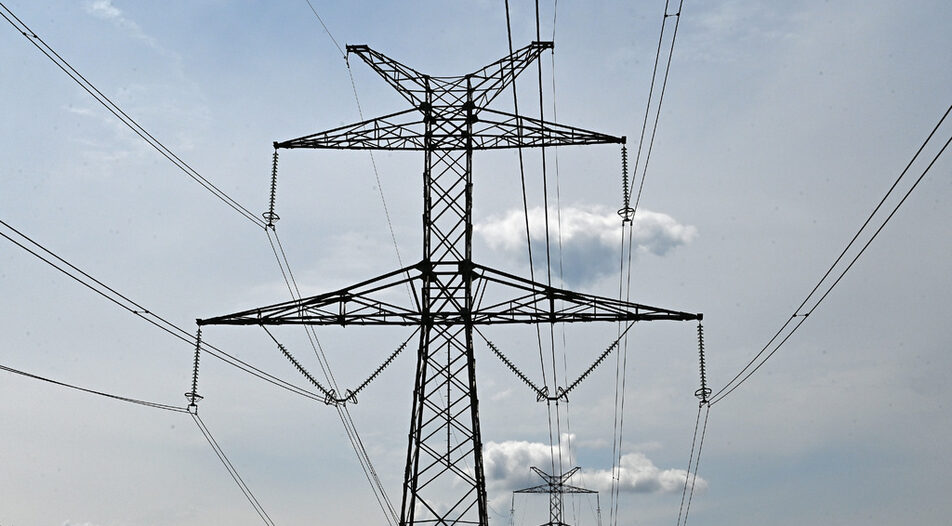1000 km cable through the Black sea will interconnect Romania and Georgia. But where is Bulgaria?
Ever since Russia invaded Ukraine and waged an energy war against Europe, some European Union countries have looked to the Caspian Shah Deniz gas field for their salvation. This has provoked a number of meetings with Azerbaijani representatives at the highest European level, with some meetings also being held in Bulgaria. Their goal was clear - find an alternative to Russian resources.
It also turns out that the Caucasian countries, Azerbaijan and Georgia, have certain assets that could help Europe with its green transition. At the end ot 2022, European Commission President Ursula von der Leyen visited Romania where a strategic agreement was signed between the governments of Romania, Hungary, Azerbaijan and Georgia for an electric cable crossing the Black Sea. This would connect the electricity system of the South Caucasus countries to that of our northern neighbor.
Many questions have arisen in the public space about the project, and the price of over 2 billion euros, but in Bulgaria, there has also been concern over the government's lack of involvement.
So far, there is no official response as why Bulgaria has been excluded, but at first glance it looks like the original plan did not include Sofia. However, some would question whether political instability explains why Bulgaria would be ignored given that the infrastructure project is of such importance.
What is the cable for?
The plan is for the 500-kilovolt cable tо start from Georgia's power grid, cross the Black Sea, and connect to the grid in Romania, thus connecting to the one in Hungary. Due to the interconnectivity of the transmission networks, the cable will also provide access to surrounding countries such as Moldova, Ukraine, and even Bulgaria. The project is due for completion by 2029.
According to von der Leyen, the power cable "will help strengthen our security of supply by bringing renewable electricity to the European Union, delivered through Romania and Hungary".
Azerbaijan and Georgia have a rich yet quite different energy mix. One country relies entirely on fossil fuels, and the other has significant hydropower capacity. Georgia derives 80% of its electricity generation from hydroelectric power plants (HPP). The country has 2.7 gigawatts of hydropower capacity, and, according to Georgian sources, there are more than 70 plants.
However, the new cable project has another focus - Georgia's offshore wind potential in the Black Sea.
Frankly, it could be argued that geopolitics are involved. The cable willl give flexibility to the power systems of countries that border Russia and depend on it as an energy source. Azerbaijan, Georgia, Ukraine and even Moldova fall into this category. In her speech, von der Leyen mentioned hopes that Georgia will be part of the European family soon, and political ties with Azerbaijan are of great importance to the EU because of the flow of cheap Azeri gas through the Trans-Anatolian gas pipeline. Five billion cubic meters of Azeri gas per year can enter Europe only through the Bulgarian interconnector which is a pipe coming from the Trans-Adriatic Pipeline, an extension of the Trans-Anatolian pipeline.
Significantly, even though Bulgaria is very reliant on Russian energy resources, it is not being included in the project. Geographically speaking, the country is as suitable as Romania as transit hub. Perhaps Romania is preferred because it borders Hungary while Bulgaria's western neighbors are countries outside the EU (such as Serbia).
Some would argue that Bulgaria is involved, just not directly, due to its grid interconnectivity with Romania.
Future plans
The signing of the agreement in Romania was attended by von der Leyen, Hungarian Prime Minister Viktor Orbán, the President of the Republic of Azerbaijan Ilham Aliyev, the Prime Minister of Georgia, Irakli Garibashvili, and the Prime Minister of Romania, Nicolae Ciuka, as well as Romanian president, Klaus Iohannis.
"The cable that will be built under the Black Sea is full of implications. Georgia will win a lot because it can become a major energy center. It will be able to provide electricity to Moldova and the Western Balkans. The project will also help to rebuild Ukraine," von der Leyen said.
According to Hungarian Foreign Minister Peter Szijjártó, the World Bank will cover a feasibility study worth 2.5 million euros, while the European Commission will be able to provide 2.3 billion euros to support the construction of the cable, which will be the longest of its kind in the world.
1000 km cable through the Black sea will interconnect Romania and Georgia. But where is Bulgaria?
Ever since Russia invaded Ukraine and waged an energy war against Europe, some European Union countries have looked to the Caspian Shah Deniz gas field for their salvation. This has provoked a number of meetings with Azerbaijani representatives at the highest European level, with some meetings also being held in Bulgaria. Their goal was clear - find an alternative to Russian resources.












